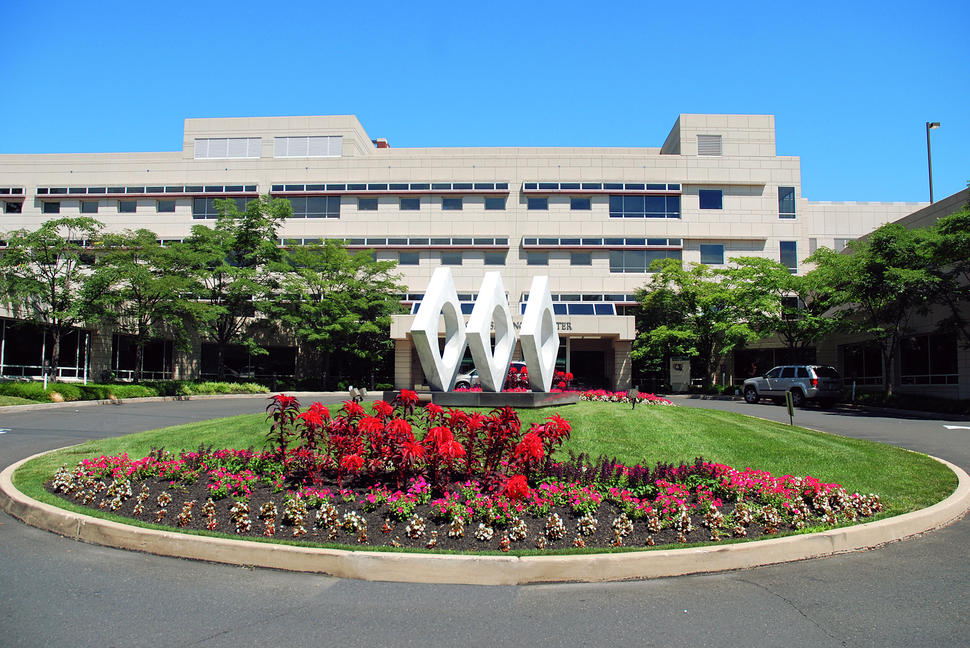
Fox Chase Cancer Center
Comprehensive Cancer Center
David Weist, Ph.D., Interim Director
Philadelphia, Pennsylvania
Cancer Information Line:
1-888-369-2427 (1-888-FOX-CHASE)
Fox Chase Cancer Center was formed and named an NCI-Designated Comprehensive Cancer Center in 1974, when the American Oncologic Hospital (established in 1904) and the Institute for Cancer Research (founded in 1927) united. Fox Chase is a freestanding cancer center affiliated with Temple University Health System and serves as the cancer program for Temple University.
The mission of Fox Chase Cancer Center is to prevail over cancer by marshaling hearts and minds in bold scientific discovery, pioneering prevention, and compassionate care. With a staff of over 2,000, the center provides both patient care and research in more than 80 laboratories, staffed by hundreds of physicians and scientists. The affiliation with Temple University has added value to the cancer center with the addition of 39 research program members from multiple university departments, the Lewis Katz School of Medicine, and the College of Public Health.
The vision of the translational medicine effort at Fox Chase is to discover diagnostic and prognostic biomarkers, devices, and therapeutics to positively impact the lives of people at risk of cancer, as well as patients with cancer.
Fox Chase is a founding member of the National Comprehensive Cancer Network, a not-for-profit alliance of the world’s leading cancer centers known for setting the accepted standards of clinical best practice in the field of oncology. The Center’s research enterprise also serves as a prime contractor of the National Cancer Institute’s PREVENT Cancer Preclinical Drug Development Program.
Research at Fox Chase Cancer Center
Fox Chase has a rich scientific history as the center that discovered the Philadelphia chromosome and the two-hit hypothesis. With two Nobel Prize winners, the Center is the site where the hepatitis B virus—a major cause of primary liver cancer—was first identified in 1967, and where a cancer-causing genetic mutation, dubbed the Philadelphia chromosome, was discovered in 1959. This earlier discovery led to a better understanding of the mutation’s role in causing chronic myeloid leukemia; the development of the drug, Gleevec; and the beginnings of the field of cancer genetics.
Clinical, basic, and population research conducted by experts across disciplines enable the center to translate new research findings into medical applications that may become models for improved cancer care. Fox Chase Cancer Center offers the opportunity for participation in clinical trials, both at the center and in the community, through its Extramural Research Program.
Select Scientific Initiatives at Fox Chase Cancer Center
Research programs at the center include:
The multidisciplinary Cancer Prevention and Control (CPC) program focuses on the integration of basic and applied research in molecular biology, oncology, and the behavioral, social, and population sciences to reduce the burden of cancer. Collaborative teams work closely to develop and implement novel, state-of-the-art approaches to reduce cancer risk and enhance cancer-related outcomes.
The Cancer Signaling and Microenvironment (CSM) Program studies signaling processes, their cancer cell-intrinsic adaptation, and how they are affected by extrinsic cell-cell communication and components of the microenvironment. By viewing cancer cells and their environment through this holistic lens, we arrive at a richer understanding of cancer biology: this in turn spurs new translational strategies for attenuating these signals and enables us to better serve patients in the communities we serve.
The mission of the Nuclear Dynamics and Cancer (NDC) program is to tackle mechanistic problems controlling nuclear function, while devising strategies to translate basic science findings into biomarker studies and/or clinical trials. The NDC program faculty members address key concepts about how proper packaging and regulation of DNA impacts genome integrity, gene regulation and epigenetic mechanisms in normal and cancer cells, while establishing how these insights are impacting therapeutic opportunities.
* The information provided on this cancer center profile was provided by the Fox Chase Cancer Center.